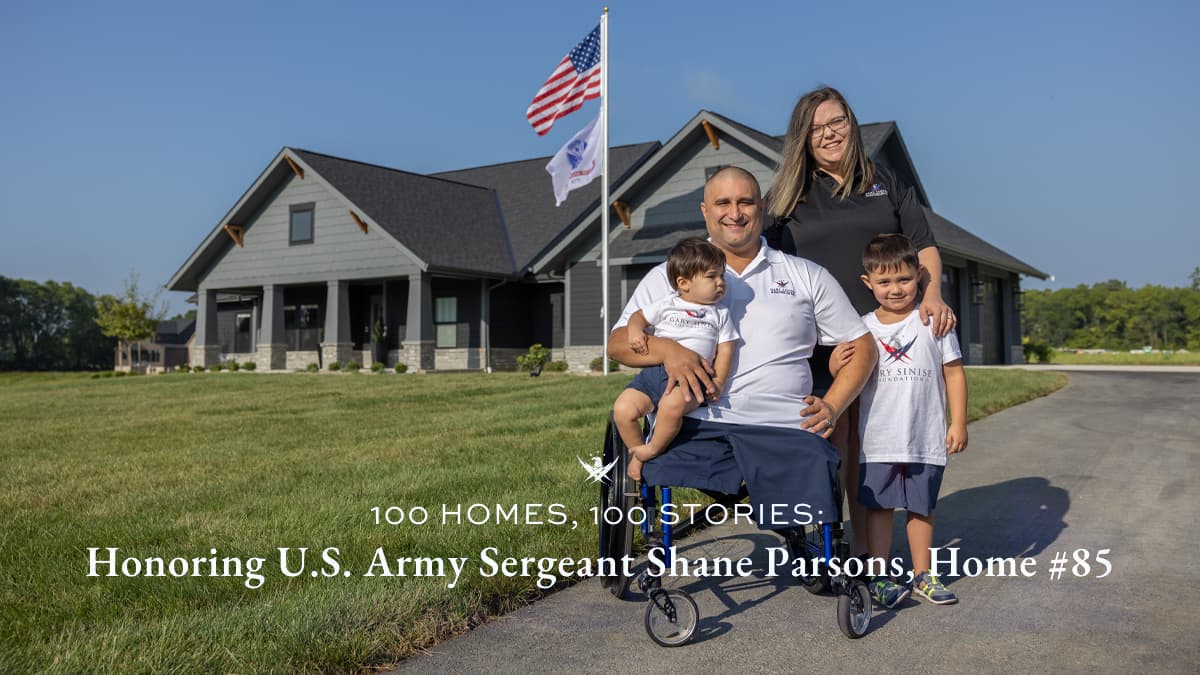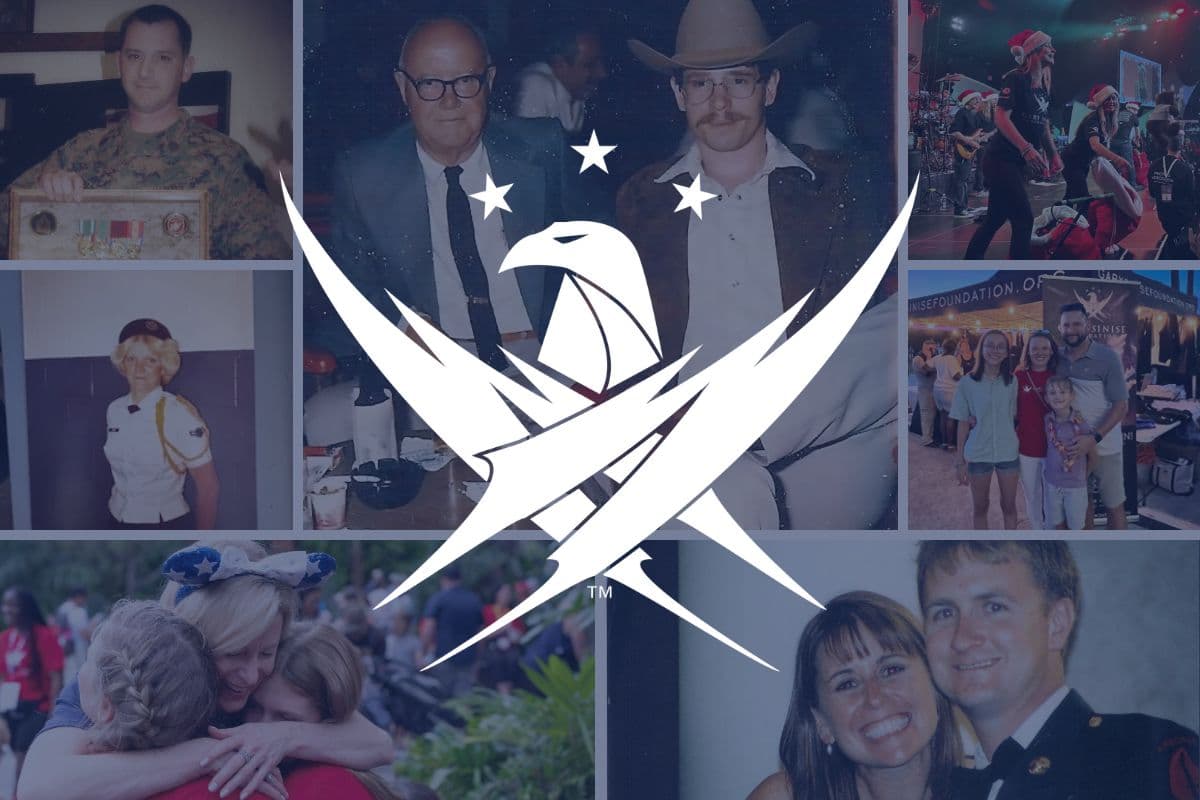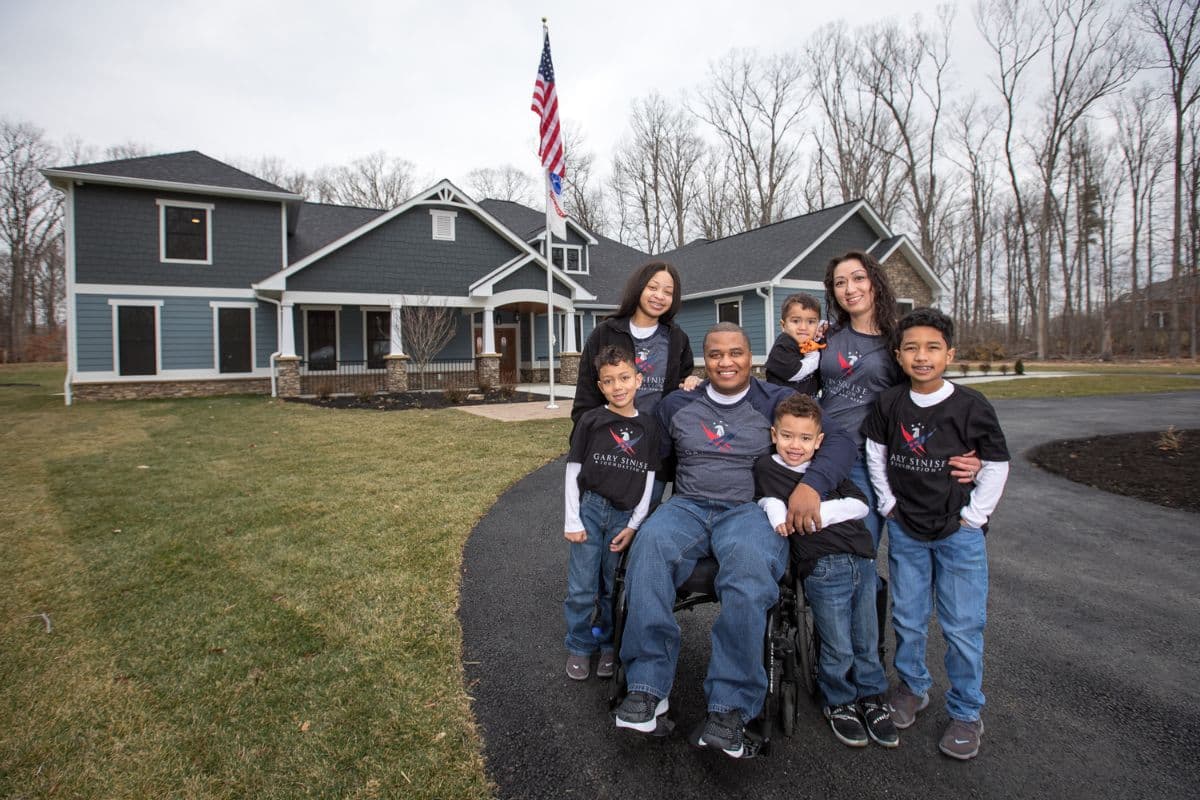Financial Aid Supports Family of A First Responder and Combat Veteran
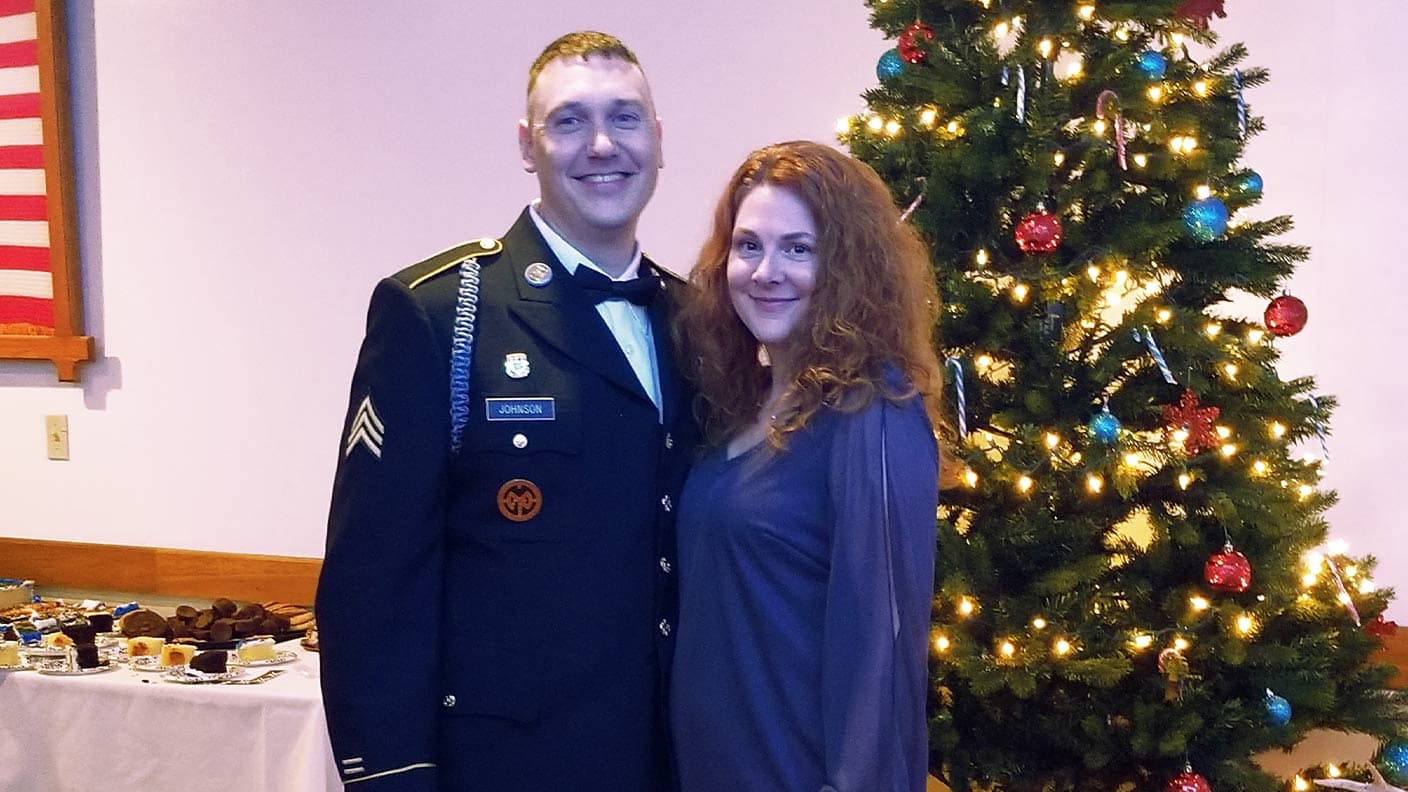
For the last four years Melissa Johnson had been a part-time substitute teacher and administrative aid at Lansing Central School District in upstate New York.
It was the perfect job for her circumstances. When she worked on campus, she was close to her kids who attended the district’s elementary school. Her flexible hours also meant that she was able to split time as her husband’s primary caregiver.
In mid-March, barely a week after New York Governor Andrew Cuomo declared a state of emergency because of the impending spread of the novel coronavirus (COVID-19) throughout the state, Governor Cuomo signed an executive order on March 16 that effectively closed all school campuses in the Empire State.
Lansing Central School District shuttered all three of its campuses and moved the curriculum online.
In the transition to distance learning, salaried faculty and full-time administrators breathed a sigh of relief because their jobs were protected. That wasn’t the case for part-time and substitute faculty not under contract, like Melissa Johnson, who lost her job, and with that, a paycheck that had for years augmented the family’s household income.
"We’re already paycheck-to-paycheck and sometimes a little behind,” she explained about the family’s financial situation before the coronavirus upended their lives.
Their budget was already tight even before COVID-19 made landfall in New York. With two kids and a teenager at home to take care of, their sole income from Nathan’s part-time job as a paramedic, and his VA benefits were barely keeping them afloat.
"It’s uncertain if we’ll even go back to school,” she said about the remainder of the school year. It is also uncertain when she will go back to work and earn an income.
Like so many Americans who now find themselves financially affected by the coronavirus, the Johnson’s are not immune to its spread.
Nathan serves on the frontlines of the coronavirus fight in Tompkin County where 113 cases have been confirmed. Each shift he said is, "a lot more stressful.”
"You have to treat every person you come into contact with that they have the coronavirus until proven otherwise.”
Nathan Johnson is no stranger to stressful situations, having been a first responder for years while also serving part-time in the New York Army National Guard and Reserves.
In January 2012, he deployed to Afghanistan for a ten-month rotation with the 108th Infantry Regiment of the New York Army National Guard.
His unit was sent to Western Afghanistan to work alongside their counterparts in the Afghan National Army as part of the NATO-led International Security Assistance Force (ISAF).
"Our overall mission was to work with the Afghan National Army to help train them and go out on patrols with them,” he said.
Operating near the border with Iran, Johnson said the missions were stressful. Making contact with Taliban forces and being shot at multiple times, "it’s pretty scary.”
A new normal in his behavior set in owing to the realities on the ground and the constant state of vigilance he had to adapt to stay alive.
"Everything around you potentially becomes a target,” he said, "even kids that are throwing rocks and hitting your truck as you’re driving down the road, you got to hold back from ‘jumping the gun.’”
What’s more, the uptick in "green-on-blue attacks” in which Afghan forces turn their weapon on coalition forces, saw a spike in shootings and fatalities during the time Johnson was in-country.
"We always had to watch our backs,” he said. "You couldn’t trust the [Afghan] Army or National Police because you just don’t know which side they’re on.”
The constant state of awareness, he said, "messes with your head.”
When Johnson returned home, he felt as if he was going from one extreme to another; the constant state of stress and anxiety he had from being on the ground and in combat was juxtaposed with being back in Lansing, New York, with his wife and kids in a tranquil atmosphere.
It was not a seamless transition for him and was fraught with complications.
"People don’t understand what it’s like over there and what you do,” he said about the disconnection civilians have with combat veterans.
Adjusting to familiar settings back home, what was once normal was now far afield.
"Nothing is normal anymore,” he said.
When he is in the car and driving, he said, "you see a piece of trash in the road, and you start freaking out.”
In Afghanistan, he trained to be extra vigilant in these scenarios because a piece of trash lying in the road could potentially conceal a hidden explosive such as a roadside bomb or an improvised explosive device (IED).
The mental stress and fatigue he has is compounded by another injury that occurred while he was on a night patrol and fell into a ditch, fracturing his back in several places.
The nagging pain from the injury remains a constant discomfort.
Nathan’s mental health had taken a serious beating after months of being surrounded by the sights and sounds of war.
Over time, the more he struggled to adjust to life at home, the more he felt stressed. "My mind was not completely back here,” he said.
Depression soon followed.
He grew tired of having to deal with post-traumatic stress disorder (PTSD) and the complex state of his emotions. Thoughts about suicide trickled into his head and took a dark turn on four separate occasions.
In January 2019, nearly seven years after he returned home from Afghanistan, Nathan heeded Melissa’s pleas and began receiving treatment for PTSD.
The out of pocket costs of the treatment program were expensive, yet it paled in comparison to the price the family paid from Nathan’s deployment.
Said Melissa, "Going through deployment you think about death, but I didn’t realize how much of an effect it would have on him and how much strain that would affect our relationship, his relationship with the kids, and the dynamics of the family.”
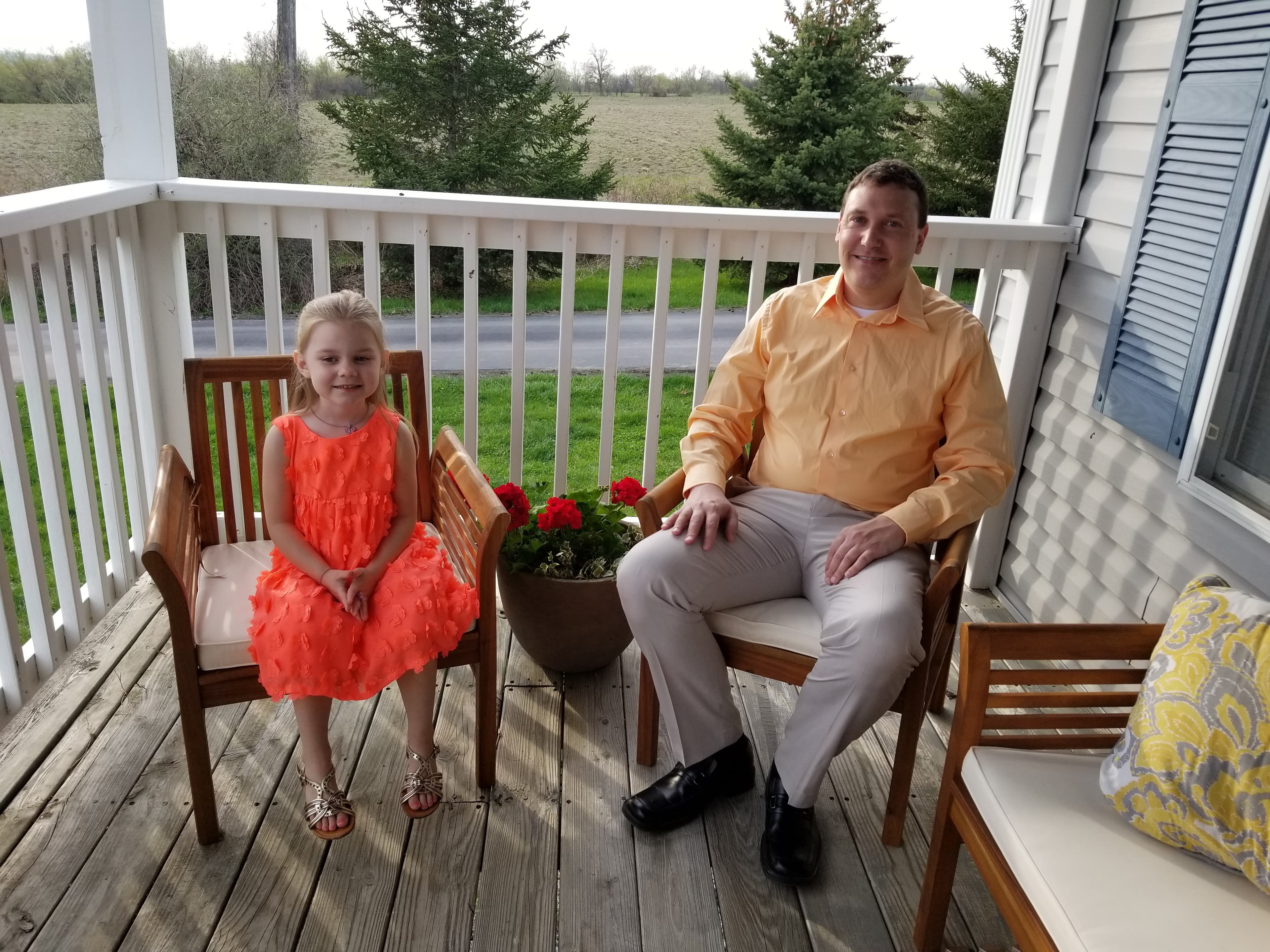
Years before she joined the Lansing School District as a part-time teacher, Melissa had worked at the nonprofit, Coalition to Salute America’s Heroes. While working at the organization, she learned about the Gary Sinise Foundation and how it helps veterans and first responders in need.
On March 18, days after she lost her job at Lansing School District, she looked into the Gary Sinise Foundation and submitted an application seeking financial support.
A little over two weeks passed when she and Nathan received confirmation from the Foundation that their application was approved. Their rent and propane expenses would be covered, and, to their surprise, they were given a grocery gift card to free up additional budget to go towards other bills.
"I don’t have that extra stress,” she said about the weight that has been lifted off her shoulders since receiving assistance. "I can get breathing room and to make a financial plan for the next couple of months to get us through.”
By sharing her story, she said, "I don’t want us to have to struggle. If we have to struggle like this, then I want to be able to help somebody else to give them the strength and courage they need to reach out.”
"It’s not easy to be vulnerable and ask for help,” she said about approaching the Gary Sinise Foundation for financial aid, "but it’s nice to know that when you do that, you are heard, and you are met, and you’re not just a number.”







